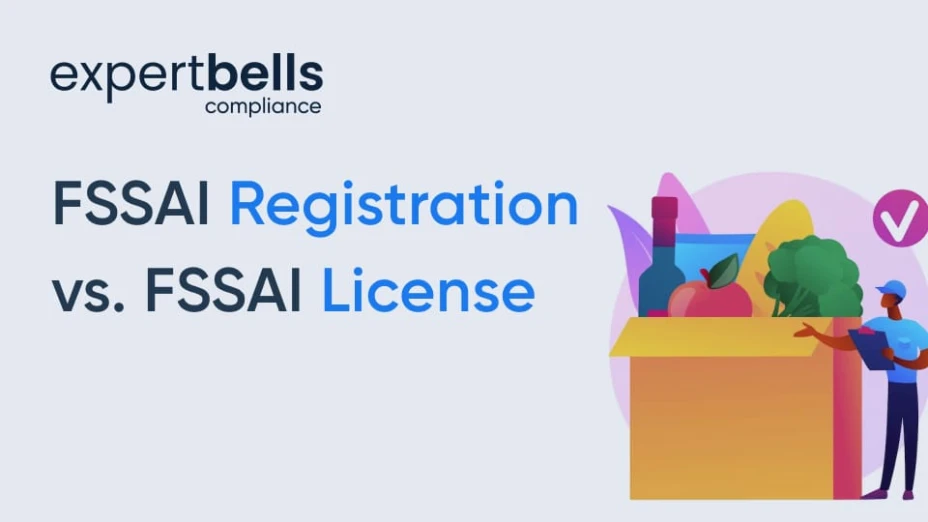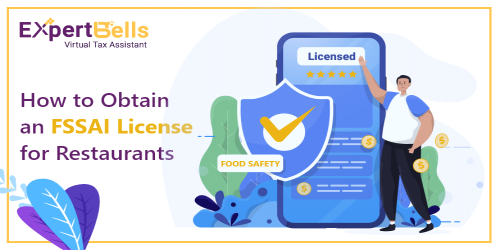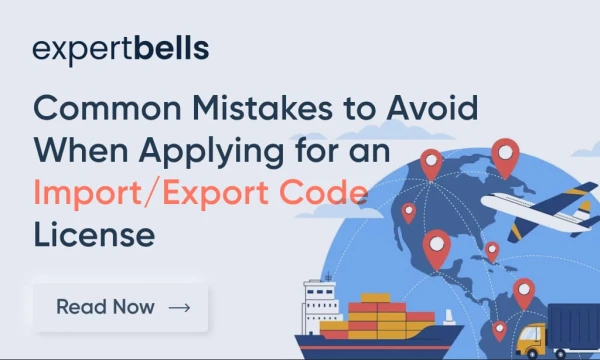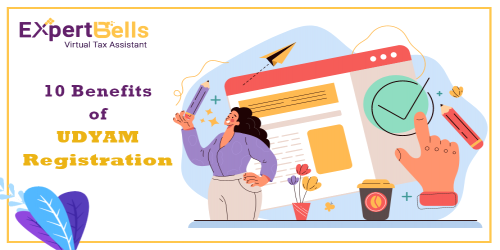FSSAI Registration vs FSSAI License

What is FSSAI Registration?
FSSAI Registration is a mandatory requirement for all food businesses in India that have an annual turnover of less than Rs. 12 lakhs. It is a process of registering your food business with the Food Safety and Standards Authority of India (FSSAI).
The registration process is relatively simple and can be done online through the FSSAI's website. The required information includes:
Name and address of the food business
Details of the food products that are sold
Contact information of the food business
Details of the food safety officer
Once the registration is complete, you will be issued an FSSAI Registration Number. This number must be displayed on all food products that are sold by your business.
What is FSSAI License?
FSSAI License is a mandatory requirement for all food businesses in India that have an annual turnover of more than Rs. 12 lakhs. It is a process of obtaining a license from the FSSAI to operate a food business.
The licensing process is more complex than the registration process and requires you to meet certain requirements, such as:
Having a designated food safety officer
Implementing a food safety management system
Complying with all applicable food safety regulations
Once the licensing process is complete, you will be issued an FSSAI License. This license must be displayed on all food products that are sold by your business.
Differences Between FSSAI Registration and License
Now that we've covered the basics of FSSAI Registration and License, let's delve deeper into the key differences between these two essential aspects of food business compliance:
1. Eligibility
FSSAI Registration: Applicable to businesses with an annual turnover of up to Rs. 12 lakhs.
FSSAI License: Required for businesses with an annual turnover exceeding Rs. 12 lakhs, and the specific type of license depends on the scale of operations.
2. Documentation
FSSAI Registration: Requires basic documentation, such as identity proof and address proof.
FSSAI License: Involves more extensive documentation, including a food safety management plan, product testing reports, and more.
3. Processing Time
FSSAI Registration: Typically processed within 7 to 45 days.
FSSAI License: May take longer, with processing times ranging from 45 to 90 days.
4. Applicability
FSSAI Registration: Suitable for small businesses and startups with limited operations.
FSSAI License: Designed for medium and large-scale food businesses, including manufacturers, importers, exporters, and distributors.
5. Geographical Scope
FSSAI Registration: Allows businesses to operate within a specific state.
FSSAI License: Permits businesses to operate at a broader, often national, level.
Which one should you get?
The type of license that you need to get will depend on the annual turnover of your food business. If your annual turnover is less than Rs. 12 lakhs, you need to obtain FSSAI Registration. If your annual turnover is more than Rs. 12 lakhs, you need to obtain FSSAI License.
How to get FSSAI Registration or License?
To get FSSAI Registration or License, you can follow these steps:
Go to the FSSAI website and create an account.
Click on the "Apply for Registration/License" tab.
Select the type of registration or license that you need.
Fill out the application form and upload the required documents.
Pay the application fee.
Submit the application.
The required documents for FSSAI Registration or License vary depending on the type of registration or license that you are applying for. However, some of the common documents that you may need to submit include:
Photo identity proof of the food business owner
Proof of address of the food business
Proof of business registration
Food safety management system plan
List of food products that are sold
Details of the food safety officer
The application fee for FSSAI Registration is Rs. 100, while the application fee for FSSAI License varies depending on the type of license and the annual turnover of the food business.
The processing time for FSSAI Registration or License is typically 15-30 days.
Once your application is approved, you will be issued an FSSAI Registration Number or License. This number or license must be displayed on all food products that are sold by your business.
Here are some additional things to keep in mind when applying for FSSAI Registration or License:
You must ensure that your food business meets all applicable food safety regulations.
You must have a designated food safety officer who is responsible for ensuring that your food business complies with food safety regulations.
You must implement a food safety management system to ensure that your food business is operated in a safe and hygienic manner.
By following these steps, you can get FSSAI Registration or License and ensure that your food business is compliant with the law.
Conclusion
FSSAI Registration and FSSAI License are two important requirements for food businesses in India. By understanding the difference between these two licenses, you can choose the right one for your business and ensure that you are compliant with the law.
Related Articles

How to Obtain an FSSAI License for Restaurants
There are infinite numbers of business ideas are available but the food business is the most popular and common business in India. India is known for its food across the globe. But, did you know that you need an FSSAI license to run a food-related business in India? Without FSSAI registration and obtaining the license, you are not allowed to run a food business in India.

Common Mistakes Avoid When Applying for an Import/Export Code License
Importing and exporting goods across international borders can be a lucrative business venture. However, it's not as simple as it may seem. To engage in global trade legally, you need to obtain an Import/Export Code (IEC) license in many countries.
Leave A Reply
Your email address will not be published. Required fields are marked *
Most Popular Blogs


What is a Mentor? Definition, Purpose & More

Difference Between Mentor and Mentee

How To Find A Business Mentor: A Complete Guide


5 Comments
Lorem Ipsum is simply dummy text of the printing and typesetting industry. Lorem Ipsum has been the industry's standard dummy text ever since the 1500s, when an unknown printer took a galley of type and scrambled it to make a type specimen book. It has survived not only five centuries, but also the leap into electronic typesetting, remaining essentially unchanged. It was popularised in the 1960s with the release of Letraset sheets containing Lorem Ipsum passages, and more recently with desktop publishing software like Aldus PageMaker including versions of Lorem Ipsum.
Lorem Ipsum is simply dummy text of the printing and typesetting industry. Lorem Ipsum has been the industry's standard dummy text ever since the 1500s, when an unknown printer took a galley of type and scrambled it to make a type specimen book. It has survived not only five centuries, but also the leap into electronic typesetting, remaining essentially unchanged. It was popularised in the 1960s with the release of Letraset sheets containing Lorem Ipsum passages, and more recently with desktop publishing software like Aldus PageMaker including versions of Lorem Ipsum.
Lorem Ipsum is simply dummy text of the printing and typesetting industry. Lorem Ipsum has been the industry's standard dummy text ever since the 1500s, when an unknown printer took a galley of type and scrambled it to make a type specimen book. It has survived not only five centuries, but also the leap into electronic typesetting, remaining essentially unchanged. It was popularised in the 1960s with the release of Letraset sheets containing Lorem Ipsum passages, and more recently with desktop publishing software like Aldus PageMaker including versions of Lorem Ipsum.